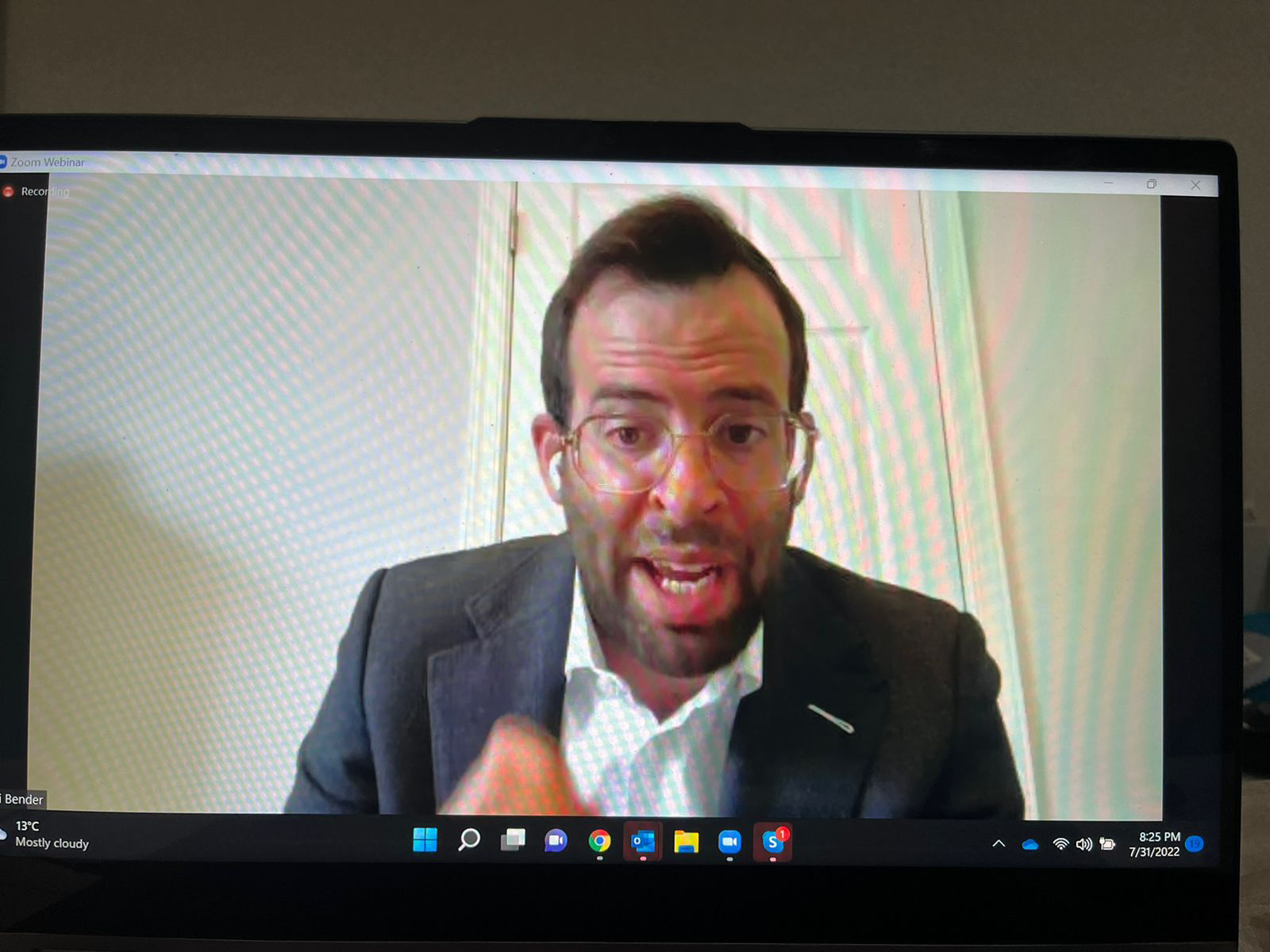click to dowload our latest edition
CLICK HERE TO SUBSCRIBE TO OUR NEWSLETTER


Published
2 years agoon
By
Steven GruzdJewish welfare organisations are under pressure around the world, facing ageing populations, the socio-economic effects of the COVID-19 pandemic, and diminishing assistance from local governments.
Their funding pool is shrinking, many people are heavily indebted, and a global recession looms on the back of the Russian invasion of Ukraine.
Nevertheless, these organisations continue to provide vital services to Jewish communities and can learn from others facing similar issues.
These key messages emerged in a webinar featuring Jewish communal welfare organisations from South Africa, the United Kingdom, Israel, and the United States on Sunday, 31 July.
They all commented on how their governments had retreated from providing adequate services – a situation exacerbated by the pandemic – creating a void for Jewish organisations to fill.
In Johannesburg, the Chevrah Kadisha (the Chev) has replaced government services that are insufficient, inefficient, and ineffective. “The Chev provides for the Jewish community from the cradle to the grave,” said Chief Executive Saul Tomson. “Pensions and disability grants are woefully inadequate in South Africa.”
Changing Jewish demographics in South Africa and a desire to avoid duplication led the Chev group to become an umbrella organisation. Tomson noted that the community was greying, with many younger people having emigrated, leaving their ageing parents in South Africa. He said that when a family overseas was concerned about their elderly relatives in South Africa, they should alert the Chev immediately and allow them access to these homes.
Mark Cunningham is the chief executive of the Federation of Jewish Services (the Fed) in Manchester. In existence since 1867, it offers social work, children’s services, mental-health services, and residential and nursing care. As is the case in South Africa, older people are living longer lives, increasing the need for care. People in the 80 to 84-year-old category in Manchester will increase 30% by 2030, as will those aged over 90. There will be a 22% increase in those living with dementia in this period. More people with disabilities are living longer and need care well into adulthood. Funding becomes stretched with competing needs. “We have a responsibility to design our services to align, not overlap,” Cunningham said.
“Jewish families are floundering from debt, mental-health issues, and COVID-19,” said Bayla Perrin, the chief executive of the London-based Paperweight Trust, which offers legal, financial, and welfare services to Jews in need. “We help fragile families pick up the pieces, especially as some local authorities have shut down,” she said.
Moshe Schapiro, the chief executive of Yedidut Toronto, joined from Jerusalem. Schapiro identified unmet mental-health needs in the haredi (religious) community as a pressing problem, but said there is an increasing willingness to deal with sexual-abuse issues. Schapiro said services need to be tailored to the cultural sensitivities of each particular community, something that the government struggles to do. However, he said, the non-governmental organisation sector was competitive in Israel and while these organisations may wish to collaborate, “it doesn’t always happen”.
Rabbi Boruch Bender founded the Achiezer Community Resource Center in New York 13 years ago. It offers services like medical referrals, assistance with insurance, and counselling. He said local government was “in excuse mode” after the pandemic.
How do all these organisations overcome the stigma some people feel when approaching them for help? Bender said they tell people, “You have come very far, and it’s okay to ask for help. It’s okay not to be okay. At the first meeting, people tremble. They have never done this before. I look them in the eye and say, ‘This is a difficult moment for you, you are now on the receiving end. Hopefully you will come back when you can give to others.’”
Perrin said people contact Paperweight “in desperation”. “In England, talking about debt is the last taboo,” she said, as people have become more accustomed to talking about difficult subjects like mental health and abuse. “They seldom reach out for help before the crisis hits,” she said.
“The amount of volunteerism and chesed [compassion, loving-kindness] is unbelievable,” said Chaya Spitz OBE, chief executive of Agudas Yisroel Housing Association in London. “I’m so proud when I take people from outside the community to see what we do – they are bowled over! People want to do good, and we need to galvanise that.”
All the organisations stressed the importance of keeping confidential the details of those they assist. Most follow a code of conduct, and those who rely on professionals demand the highest ethical standards. People need to know it’s safe to share their difficulties.
“The concept of chesed appears more than 250 times in the Torah. This means we have to look out for those less fortunate,” said the panel moderator, Lord Jonathan Kestenbaum.
In these tough times, Jewish communities the world over know how to look after their most vulnerable members. They need the support of all of us to support others.
